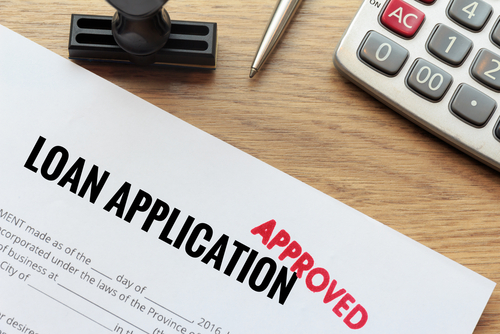Understanding Bridge Loans: A Type of Short-Term Financing
There are plenty of ways to finance real estate, depending on your needs and preferences. You may look for traditional financing, like a mortgage loan, or you may look at alternative options, like hard money loans. Or, perhaps you need short-term financing while looking for a more permanent solution. In that case, you may look into bridge loans. Today, we’ll go over what bridge loans are used for, how to get one, and some of the pros and cons for investors to consider.

Contents of This Article:
- What Is a Bridge Loan and What Are They Used For?
- How Can Borrowers Get a Bridge Loan?
- How Does a Bridge Loan Compare to a Hard Money Loan?
- Pros and Cons of Bridge Loans
- Find the Right Local Lender for Your Needs Today
What Is a Bridge Loan and What Are They Used For?
A bridge loan is a short-term loan typically used to provide temporary financing for investors until they can secure more permanent financing. It’s called a “bridge” loan because it’s designed to “bridge the gap” between your current and future financing. Typically, bridge loans must be paid back within 12 months or less.
Bridge loans, a type of private money financing, can come in handy in several situations. For instance, some common use cases include the following:
- Securing a new investment home in a competitive market
- Buying a new home before selling an existing one
- Inability to afford a down payment without selling your current home
How Can Borrowers Get a Bridge Loan?
Borrowers needing a bridge loan can get one through various channels, although some institutions deem them too risky. However, you may decide to work with a bank, credit union, or a private lender, like Maryland Hard Money Lenders. That said, if you want to get a bridge loan, you’ll want to understand the requirements and gather the necessary documents.

Different lenders may have varying eligibility criteria. This may include factors like credit score requirements, income verification, the purpose of the loan, and the type of collateral accepted. Understanding these requirements can help you prepare your application.
Most lenders will look for a credit score of around 500 to the high 600s and evaluate your debt-to-income ratio. Additionally, if you’re taking a traditional bridge loan, many lenders look at how much home equity you have.
You’ll also need to provide various documents to support your application. For instance, you’ll need personal identification, like your driver’s license, proof of income, credit history reports, property details, and any existing loan documents or agreements. Once you’ve gathered the necessary documents, you can submit an application to your chosen local lender.
How Does a Bridge Loan Compare to a Hard Money Loan?
Bridge loans and hard money loans are both types of short-term financing options, often used in real estate transactions. However, they have some important differences.
- Loan Purpose
- Interest Rates
- Loan Approval Time
- Borrower Qualifications
Loan Purpose
One of the main differences between hard money loans and bridge loans is their purpose. Hard money loans are short-term loans primarily used for real estate investing. They’re usually used by investors who don’t qualify for traditional financing due to factors like poor credit, limited income history, or the need for a quick closing.
On the other hand, bridge loans are used to bridge a financing gap until more permanent financing can be secured. They’re usually used for a short period when a borrower needs to buy a new property before selling an existing one.
Interest Rates
Hard money loans often come with higher interest rates and fees due to the increased risk for the lender. However, while they’re more expensive, they can provide financing for borrowers who might not qualify for other types of loans.
Bridge loans usually have lower interest rates than hard money loans and also may come with lower fees.
Loan Approval Time
Another difference between hard money loans and bridge loans is the approval time.

For instance, hard money loans are usually approved faster than bridge loans. After all, lenders often focus less on the borrower’s creditworthiness and more on the value of the property being used as collateral, leading to a faster approval process.
However, the approval process for bridge loans can be more standardized and may involve some traditional underwriting criteria, which can take more time.
Borrower Qualifications
Both hard money loans and bridge loans are typically easier to qualify for than traditional financing methods. However, hard money loans are even easier to obtain than bridge loans, as lenders focus more on the property’s value than the borrower’s creditworthiness.
On the other hand, while bridge loans are fairly easy to obtain, they still require the borrower to have good credit and sufficient income to repay the loan. Additionally, lenders will want to see that the borrower can secure permanent financing in the future.
Pros and Cons of Bridge Loans
Bridge loans can offer significant benefits, but they also come with their own set of drawbacks. Here are some of the main pros and cons of using this short-term financing method.
Advantages of Bridge Loans
- Quick Access to Funds- Bridge loans are designed for speed, and they can be arranged relatively quickly. This is helpful in situations where investors need quick access to capital.
- Helps Secure a New Property- Bridge loans can help investors move forward with purchasing a new property before selling an existing one. This can be especially helpful in competitive real estate markets.

- Flexible Use of Funds- Bridge loans are quite versatile, as you can use them for various purposes. For instance, borrowers may use them for real estate purchases or other short-term financial needs.
- Temporary Financial Relief- These short-term loans provide a temporary financial solution to bridge the gap until more stable, long-term financing becomes available.
Disadvantages of Bridge Loans
- Higher Interest Rates and Fees- Bridge loans typically come with higher interest rates and fees than traditional loans. This means the cost of borrowing can be significantly higher.
- Short Repayment Period- Bridge loans are short-term, meaning they must be repaid relatively quickly. This can put pressure on borrowers to secure permanent financing or sell their existing property in a short amount of time.
- Risk of Default- If you cannot secure long-term financing or sell your collateralized property in time, you may face default, leading to serious financial consequences.
- Limited Availability- Not all lenders offer bridge loans, and eligibility criteria can be quite strict. As such, borrowers may need to shop around and potentially pay higher fees or interest rates to secure this type of financing.
Find the Right Local Lender for Your Needs Today
Whether you’re looking to get a bridge loan or a hard money loan, finding a local lender that fits your needs is crucial. Luckily, Maryland Hard Money Lenders has the expertise to help you obtain your loan quickly and efficiently.
Our team of experts offers several short-term loans, whether you want to finance a fix-and-flip project, need bridge financing, or want to quickly fund a rental investment. If you’re looking for a local Maryland lender that’s flexible and effective, fill out our initial loan application today.



